The wide world of professional firefighters is constantly growing. With over 300,000 brave men and women currently serving and saving lives around the U.S. right now.
That spirit of bravery and desire to serve the greater good is a strong motivator for military personnel, too. So if you’re a veteran or are currently in a branch of service, but thinking about making the switch to become a firefighter, here’s a few tips to light up your path!
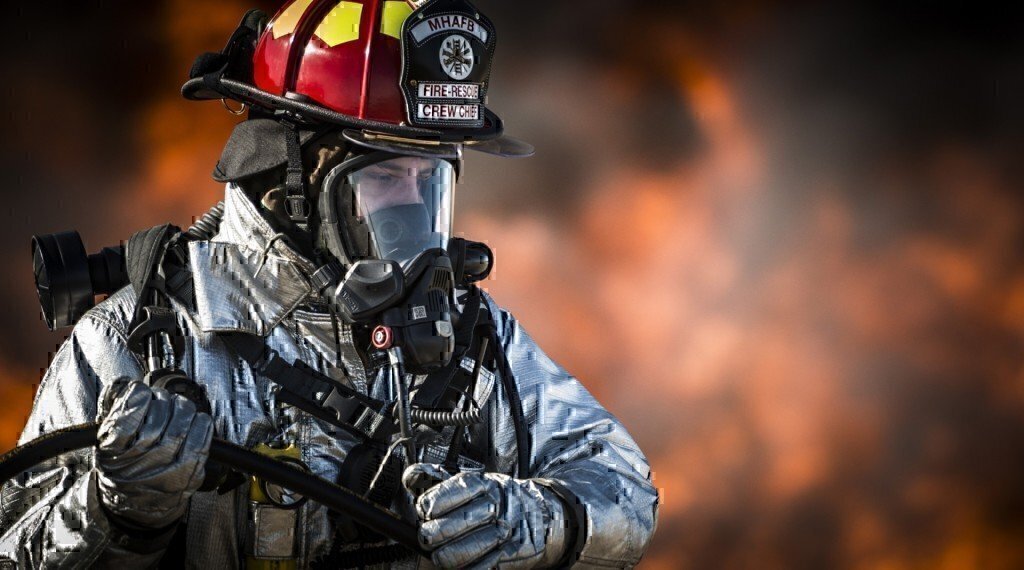
Schedule a visit to meet with a local firefighter
Most likely, before you ever joined the military, you talked to family and friends. Or maybe that uncle or cousin who served and who told you to join another branch than the one you’re asking about. But perhaps you don’t know any firefighters? That’s okay. Don’t be shy about seeking them out. Nobody can tell you what the day-to-day grind is like better than a person doing the job.
Contact the station closest to where you want to work and talk to somebody. When potential recruits come to them, it actually makes their lives easier. So see if they’ll let you stop by for an informational visit or better yet ask about upcoming recruitment fairs. Go in with a set list of questions. Also, have an open mind and pay attention to the details they offer.
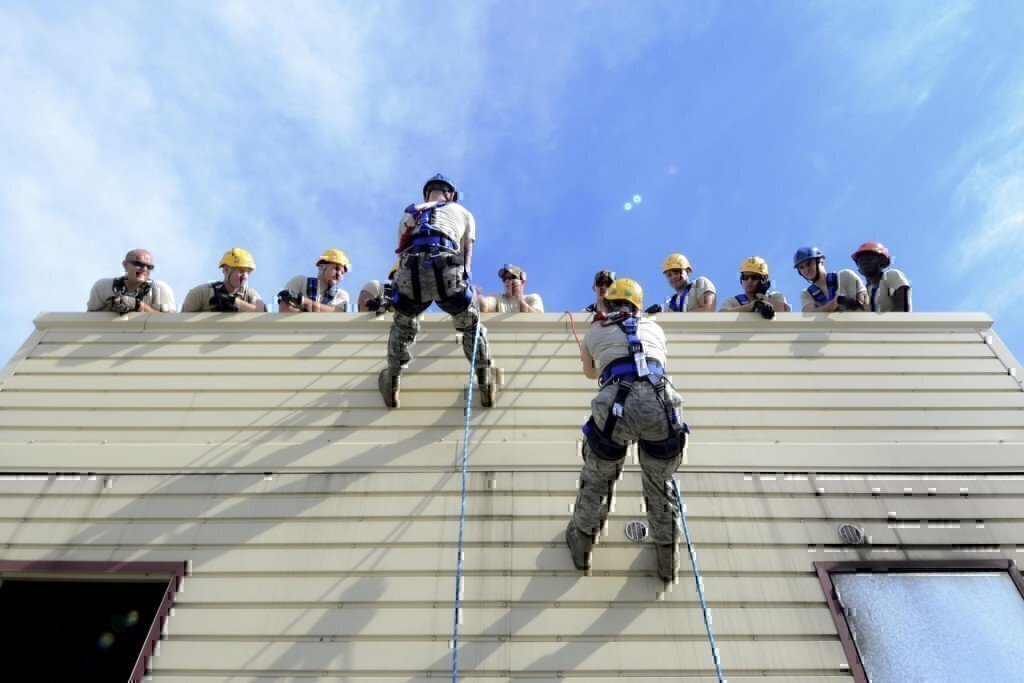
Time for the Training
Every geographic area has a different set of needs and qualifications, so after you get some information about what the job is like then, if you are still interested, inquire about the specific local requirements. Every military professional has a different set of training requirements, with some personnel going to brief training sessions in a cozy, comfortable academic setting and others going through numerous arduous physical training environments exposed to the elements. Firefighters will also face differing requirements, so don’t rely solely on Internet research. Ask!
But as a potential firefighter, you can expect, at a minimum, to go through some academic training. This may occur at a technical school or even a college an academy. Firefighting, it goes without saying is tough work. Long hours and, as you can imagine, there’s a lot of stress! Therefore a firefighter has to be in superstar physical condition, with the resilience and emotional fortitude to handle crises.
But often times it is that physical aspect that catches the new recruits off guard, because they take it for granted. Being able to run a few miles or do a few push-ups is not going to get you into the shape you may need to be in. But don’t worry; as with the military, they’ll have a fitness test (the Candidate Physical Ability Test, or CPAT, to be exact), that they will run you through and that you’ll need to pass in order to gain entry. Suffice it to say, you’ll know soon enough if you’ve got what it takes…or if you need to hit the gym for some circuit training first! Oh, and apart from running, expect lots of stairs and be ready to carry a couple hundred pounds (just to give you an idea of what’s in store).
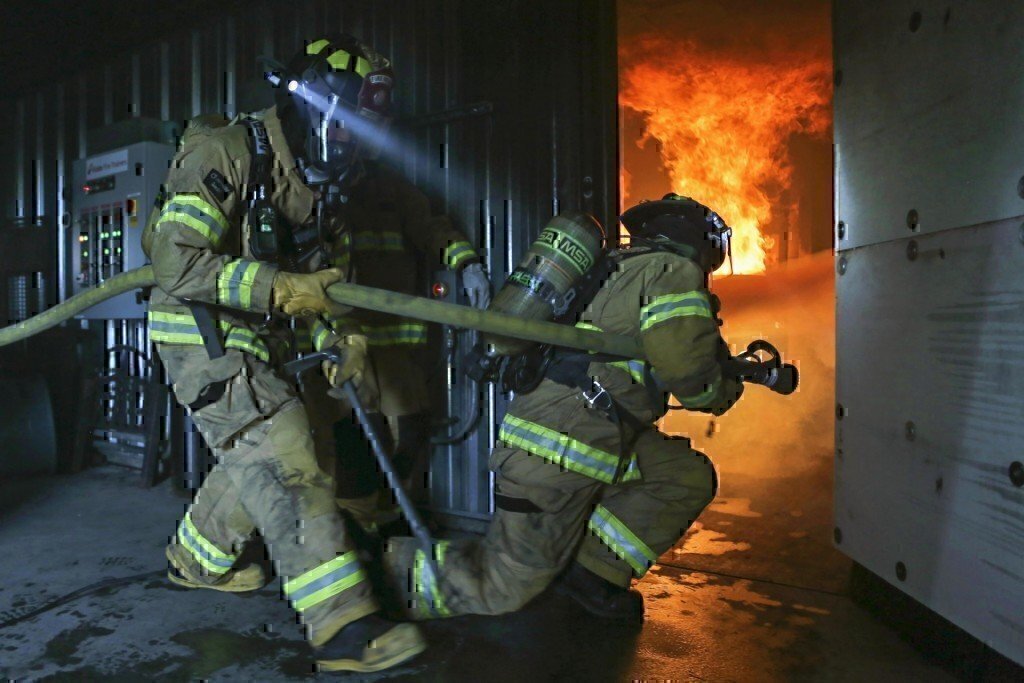
What does this testing look like?
If the station tells you about an upcoming recruitment fair, go out and meet the department personnel and you may be able to take a test or a written exam on the spot, just to see how you do. Like military ASVAB or officer tests, firefighter exams have several multiple choice questions covering a wide range of topics related to the things one might expect to encounter on the job…things such as spatial awareness, mechanical reasoning, observation skills, memory, etc.
A firefighter has to be an on-their-feet thinker, because lives are at stake and drastic events can occur rapidly and without warning. Say you’ve entered a building that starts filling with smoke and suddenly the roof begins to collapse as you are hauling out an injured occupant. Which way was the exit again? Did you notice any other ways to get out, in case the exit is blocked? Now you see why you need spacial awareness, observation, and memory!
Speaking of rescuing occupants, firefighters are in the business of saving lives and providing first responder care. Which means you may need to obtain an Emergency Medical Technician (EMT) license. This level of certification goes beyond the standard first aid or CPR training that the average military member requires, but don’t feel bad. Having any self-aid and buddy care training from the service gives you a basic exposure to medical training, which is a good foundation to start with.
Like the military, On the Job Training is another big area of focus. Firefighters learn the ropes right there in the firehouse they are assigned to. But again, there will most likely be many classroom courses to attend, in addition to all that joyous OJT. For example, learning about hazardous materials or anti-arson training. If you really want to go deep (and prep for a future promotion), you can go for an associate’s and bachelor’s degree. University forestry programs often offer a focus on firefighting, for instance. There is also a 110-hour course offered by the National Fire Protection Association.
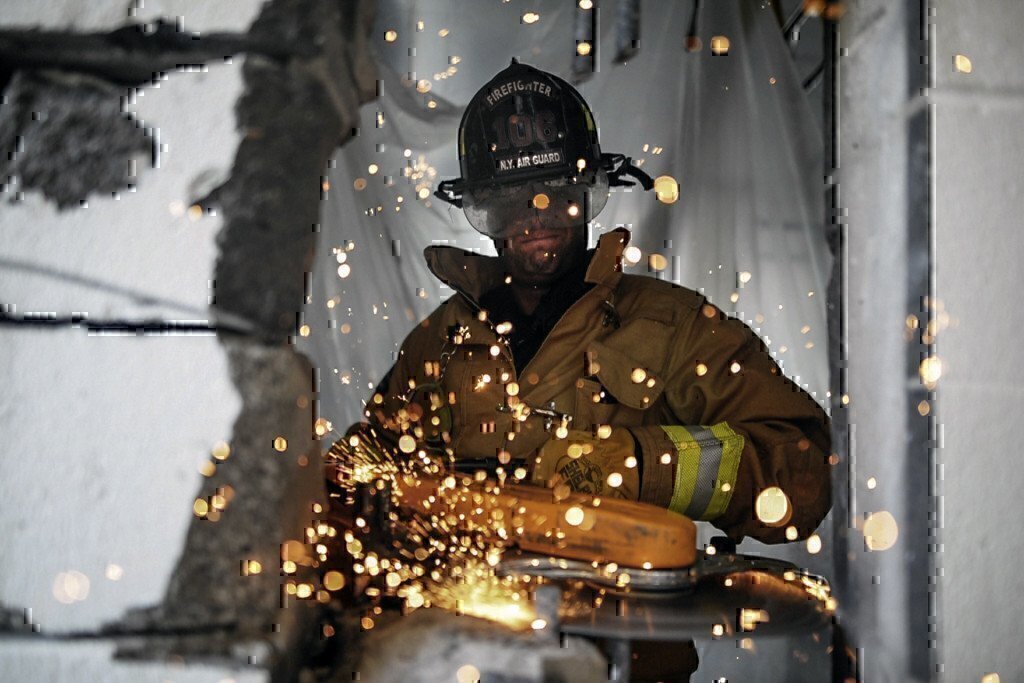
When you are ready to apply
Honestly the average new firefighter often simply begins by volunteering to gain real-world experience. Often while attending classes related to firefighting technology and other related topics. Such courses offer instruction on using hoses, pumps and other gear to extinguish fires; to evacuate; treating an injured personnel; how to operate an emergency vehicle; equipment maintenance; and basic public safety educational outreach. So, as with your job in the service, you can expect to always be learning something new to expand your horizons. The military is very good at building up this mentality for constant new growth. In fact chances are you don’t even realize it because you’re so used to it!
When you are ready to no-kidding start the full application process, again you’ll take a written test. You will also do an interview where they’ll ask about your career goals; you’ll have to pass a drug screening exam; you’ll have to pass a comprehensive physical exam to check on your vision, hearing, blood pressure, and even personality traits. Then comes the background vetting. The will dig into your job experiences, credit report, references, and your criminal records, of course. There’s also an age requirement, typically 18 years of age minimum but 21 for certain agencies. So, yes, all of this is a bit more stringent than what your average civilian job might be. For a service member, it should be no problem at all.
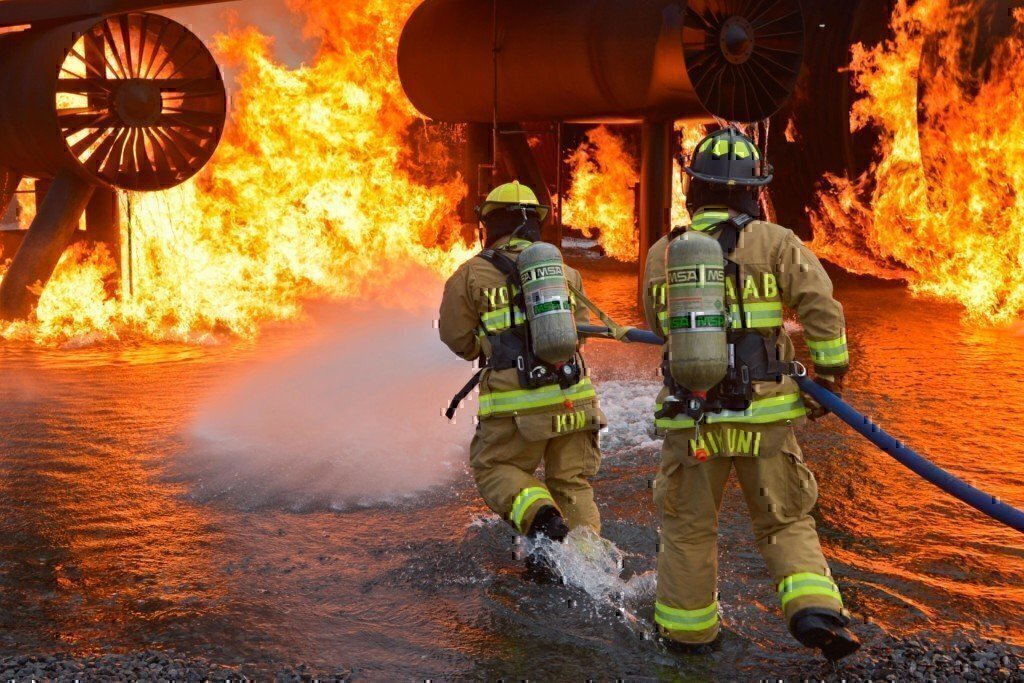
What about career progression?
Once you’re in, you have promotional opportunities, not unlike the military. Firefighters can progress on to become engineers, or hold the ranks of lieutenant, captain, or battalion chief. One can progress up all the way to deputy chief and fire chief. Of course, no matter what role you file, there will always be a ton of behind-the-scenes administrative duties to perform. Fleet maintenance, admin reports, safety training, and establishing relationships with partner services such as the police or other state and federal agencies are all par for the course.
One more similarity to the service is the wide variety of duty location and types of units you might find yourself working for. Fires can occur anywhere, which is why there are so many options to choose from. Wilderness firefighting is a major one, naturally. The point is that after spending a few years (or decades) in the military. You will be more well-equipped than you might realize to make the transition over into the world of firefighting. So if you are ready to embrace a new challenge and a new phase in your life, reach out to a local fire department today and start make contacts!
READ NEXT
7 Gym Essentials to Build an At-Home Gym
6 Veteran Influencers to Follow into 2019








